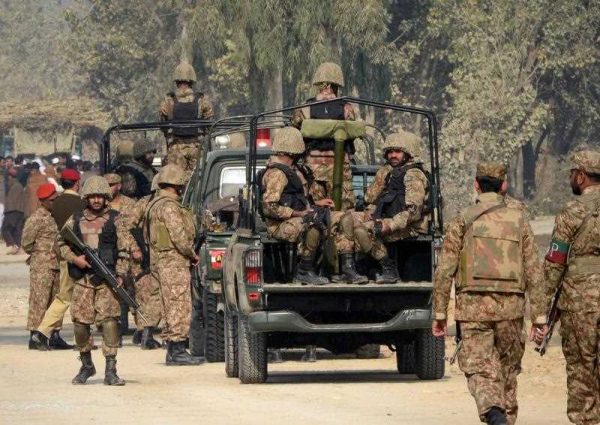In recent years, terrorist attacks were predominantly concentrated in the areas bordering Afghanistan and in Karachi in Sindh province, while Punjab, the real political heart of the country, had been substantially spared by the wave of violence. But recent terrorist activity in Punjab shows that the threat is now widespread throughout the country, including in major urban centres. In 2013, 64 civilians were killed in terrorist attacks, while this year already there have been over 120 fatalities. Equally worrying is the increase in suicide attacks: none were recorded in 2013, but four were recorded in 2014.
The attack was claimed by a number of terrorist groups active in the country, all of them with a connection to the Tehrik-i-Taliban Pakistan (TTP), a coalition which has been responsible for most of the attacks carried out in Pakistan since 2007. This indicates increasing fragmentation within the TTP, a process that has been underway for several years, but which has further accelerated since June. That month saw the beginning of a major operation to fight terrorism in the areas bordering Afghanistan, which has so far resulted in the deaths of more than 1,100 alleged terrorists.
The military intervention has certainly contributed to a decrease in terrorist activity within the country and has also encouraged some factions — including one of the largest, the Mehsud — towards negotiations with the government. There were 420 terrorism-related civilian casualties between July and October, less than half compared to the same period (883) in 2013. But this could be a short-term trend, which may disappear as various formations take advantage of the lack of security cooperation between Afghan and Pakistani authorities.
The attack on 2 November could mark the beginning of a new wave of violence in the country, especially considering the competition among groups to strengthen their international exposure, recruitment capacity and access to resources. Such a scenario would confirm fears regarding the actual effectiveness of Pakistan’s counter-terrorism operations in progress since June. The military operation is considered by many to be little more than symbolic, especially since it does not seem to be accompanied by a more fundamental rethinking of the overall approach towards terrorism.
The decision at the end of the 1970s to increase the influence of radical Islam over the national education system has certainly contributed to the spread of extremism among the young. The consequences are clearly visible today. Pakistan has among the highest levels of sectarian violence in the world and holds the record of people jailed for blasphemy — a charge often used to target religious minorities.
In 2013, presenting the new national policy to combat terrorism, the former Interior Minister, Chaudhry Nisar Ali Khan, emphasised the need to evaluate the role of the country’s education system in developing extremist mindsets. But nothing has been done to intervene thus far. Budgetary constraints, which have pushed the authorities to partly rely on religious institutes to fill the governance vacuum, have also meant the Pakistani government has not yet come up with a plan to reform the education system. Such a plan would bring economic benefits by improving human capital in addition to countering the spread of extremism in the country. Continuing along the path of General Zia ul-Haq is equivalent to a substantial admission of failure on the part of state authorities, as they are unable to claim legitimacy through the provision of essential services and by ensuring the safety of the population. This forces them to seek other, often religious, justifications for the state’s legitimacy.
The legitimacy of a state is essential to its stability. Religion by itself, in the case of Pakistan, does not seem to be a sufficient source of legitimacy. Keeping up the military pressure on terrorist groups operating in the country may allow Pakistani authorities to achieve some positive results in the fight against terrorism, but they will inevitably be limited unless they are accompanied by a necessary, even if painful, review of some important paradigms of domestic and foreign policy.
Daniele Grassi is a security analyst for IFI Advisory in Rome. He is also a Wikistrat contributing analyst for South Asia.

